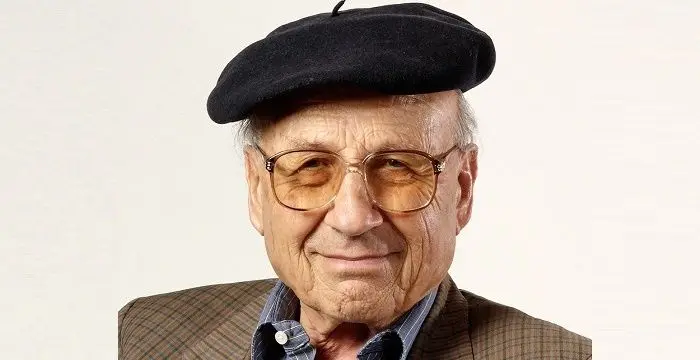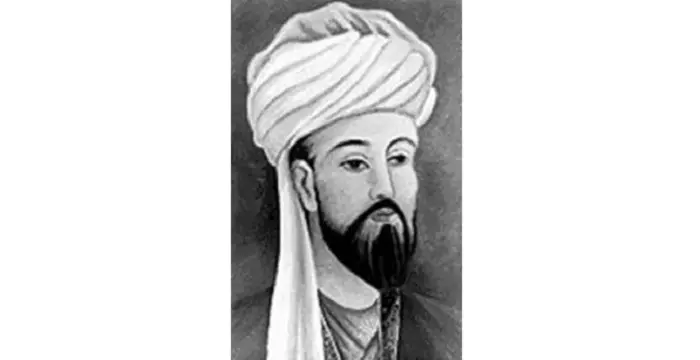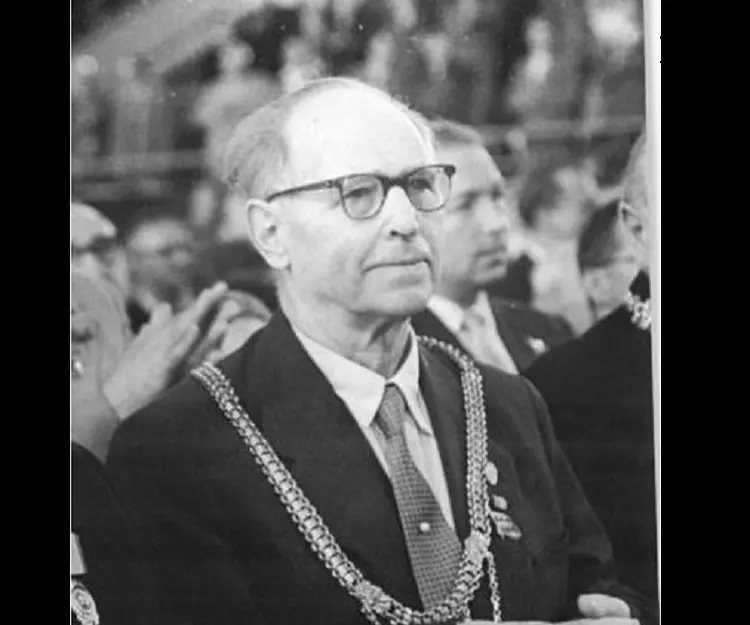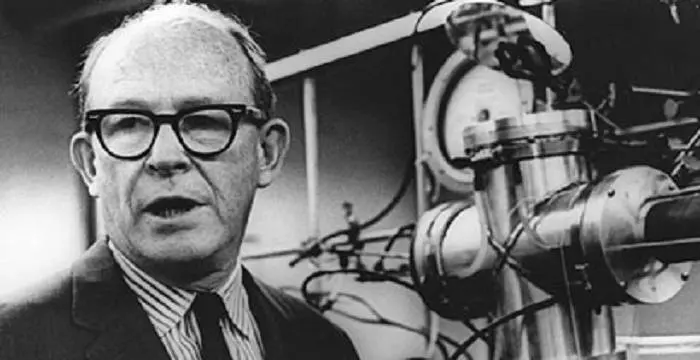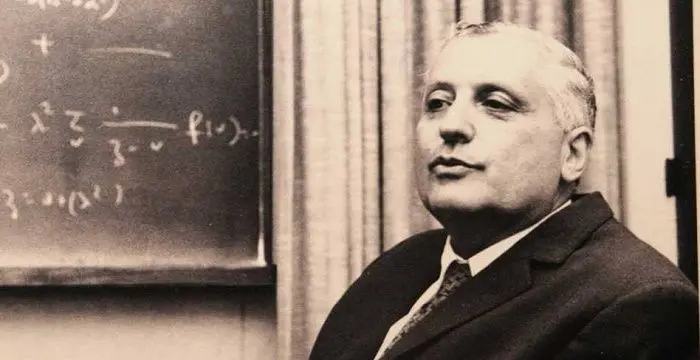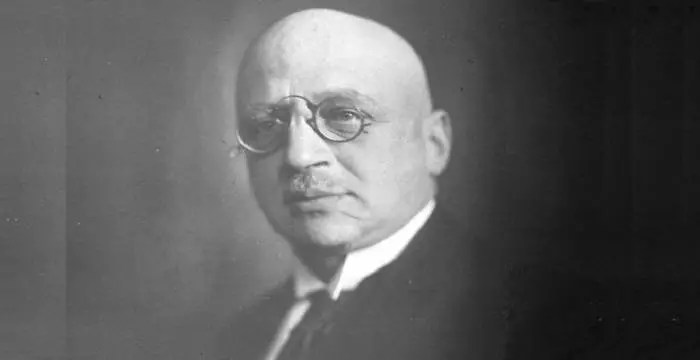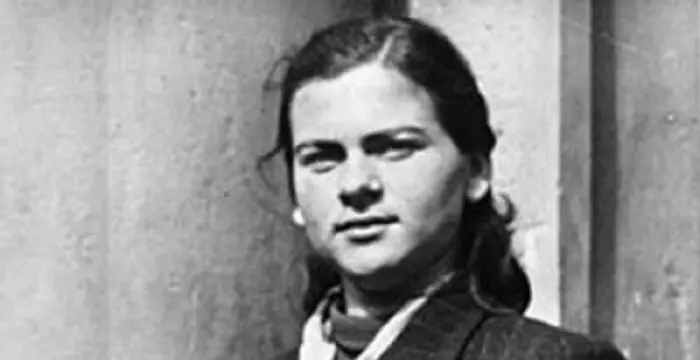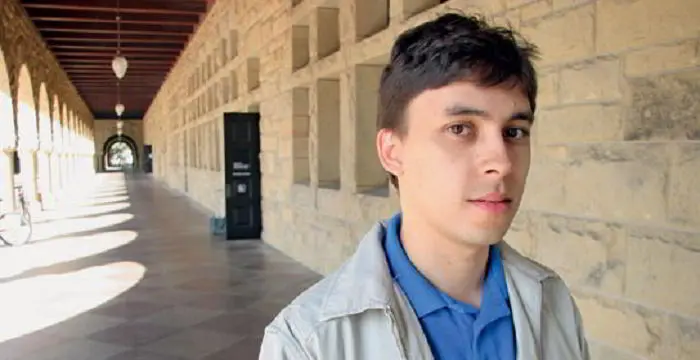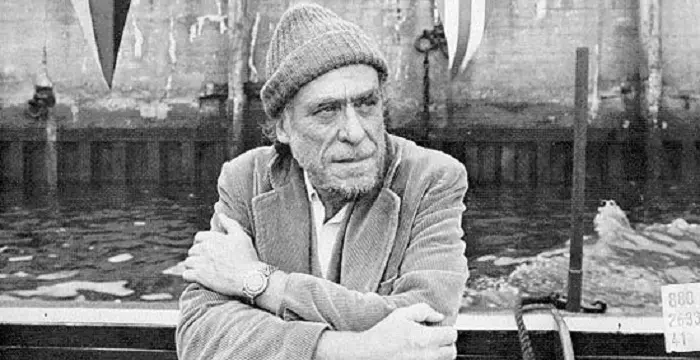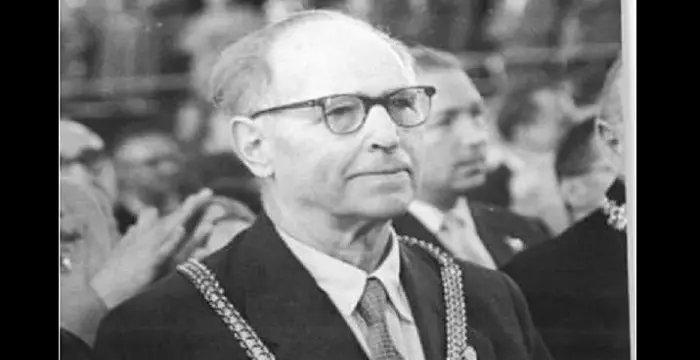
Max Volmer - Chemists, Career and Family
Max Volmer's Personal Details
Max Volmer was a German physical chemist who is known for his important contributions to the field of electrochemistry
| Information | Detail |
|---|---|
| Birthday | May 3, 1885 |
| Died on | June 3, 1965 |
| Nationality | German |
| Famous | Scientists, Chemists, Physical Chemists |
| Known as | Фольмер, Макс |
| Universities |
|
| Birth Place | Hilden |
| Gender | Male |
| Sun Sign | Taurus |
| Born in | Hilden |
| Famous as | Chemist |
| Died at Age | 80 |
// Famous Chemists
Henry Cavendish
Henry Cavendish was a theoretical chemist and physicist, renowned for discovery of hydrogen and calculation of the mass of earth. To know more about his childhood, profile, timeline and career read on
Walter Kohn
Nobel Laureate Walter Kohn was an Austrian-born American theoretical chemist and physicist. Check out this biography to know about his childhood, life, achievements, works & timeline.
Jabir Ibn Hayyan
Jabir Ibn Hayyan was a medieval era polymath. Check out this biography to know about his life, works and achievements.
Max Volmer's photo
Who is Max Volmer?
Max Volmer was a German scientist who specialised in the field of physical chemistry and is credited for laying the foundations for phenomenological kinetic electrochemistry with his work on the Butler-Volmer equation. He studied at the Phillips University of Marburg and subsequently went on to study at the University of Leipzig, from where he was awarded his doctorate. He taught at the University of Leipzig and within two years of taking up the teaching position he became a Privatdozent. He was involved in military-related research at the Physical Chemistry Institute at the Friedrich-Wilhelms University and also worked in the research wing of an well-known German industrial firm named Auergesellschaft. Subsequently, he built the mercury steam ejector in collaboration with Otto Stern and co-authored a paper with him which resulted in the attribution of the Stern–Volmer equation and constant. He taught at some of the best known educational institutions in Germany, including the University of Hamburg and the Technische Hochshule Berlin. From 1945 to 1955, he spent his time as a researcher in Russia and helped the country with plenty of research programmes and subsequently he was honoured by the Russians with an award. He taught at the Humboldt University of Berlin after coming back to East Germany.
// Famous Physical Chemists
Willard Libby
Willard Frank Libby was an American physical chemist who was awarded the ‘Nobel Prize’ in Chemistry in 1960. This biography profiles his childhood, life, career, research, achievements and timeline.
Ilya Prigogine
Ilya Prigogine was a Russian-born Belgian physical chemist who was awarded the Nobel Prize for Chemistry in 1977. This biography of Ilya Prigogine provides detailed information about his childhood, life, achievements, works & timeline.
Fritz Haber
Fritz Haber was a German chemist who won the 1918 Nobel Prize in Chemistry for the synthesis of ammonia from its elements. Check out this biography to know about his childhood, life, achievements, works & timeline.
Childhood & Early Life
Max Volmer was born on May 3 1885 in Hilden located in North Rhine Westphalia, Germany.
In 1905, he enrolled at the Phillips University of Marburg and graduated three years later with a bachelors’ degree. Subsequently, he studied at the University of Leipzig and in 1910, he achieved his doctorate from the university. His doctoral thesis was based on his work on photochemical reactions in high vacuums.
Career
After attaining his doctorate, from the University of Leipzig, he was appointed in the capacity of an assistant lecturer at the same university in 1912. The following year, he completed his Habilitation, and became a Privatdozent at the University.
He joined the Physical Chemistry Institute at the Friedrich-Wilhelms University in 1916 and worked on military-related research. In 1918, he joined the research wing of the industrial firm named Aurgesellschaft in their headquarters in Berlin and worked there for two years.
He collaborated with Otto Stern to invent a device known as the mercury steam ejector in 1919. Consequently, he and Stern co-authored a paper which resulted in the attribution of the Stern–Volmer equation and constant. The following year, the University of Hamburg appointed him as the extraordinarius professor of electrochemistry and physical chemistry.
In 1922, Max Volner was appointed ordinarius professor and director of the Physical Chemistry and Electrochemistry Institute of the Technische Hochschule Berlin. During the period he spent at the Technische Hochshule Berlin, he discovered the phenomenon of Volmer diffusion which involved the migration of absorbed molecules.
He expanded on the work done by John Alfred Valentine Butler to produce the Butler-Volmer equation in 1930 and this particular work spawned a new branch of science known as phenomenological kinetic electrochemistry.
Following a pact among some of the leading scientists in Germany of the day, Volmer moved to Russia along with three others in order to protect the scientific institutions and themselves from persecution at the hands of the Nazis. He lived in Russia for a decade, starting in 1945 and during this period, one of his most important projects was his work on the production of heavy water. He also worked on a project involving plutonium extraction.
After coming back to East Germany, he was made an ordinaries professor at the Humboldt University of Berlin on 1 May 1955. On 10 November of the same year, he was made one of the members of the Council of Ministers of the GDR or the German Democratic Republic.
On 8 December 1955, the German Academy of Science appointed him as its president and he continued in that post till 1959.
In 1957, he became an initial member of the Forschungsrat of the GDR.
Major Works
His most important work in his long scientific career is without doubt his work on the Butler-Volmer equation, which he produced in 1930 after going through the work that had been done by Butler. It laid the foundations for phenomenological kinetic electrochemistry.
Awards & Achievements
Max Volmer was awarded the Outstanding Scientist of the People prize by the Soviet Union following his decade long work in the country from 1945 to 1955.
Personal Life & Legacy
Max Volmer married Lotte Pusch, a physical chemist by profession.
He died on June 3, 1965, in Postdam, at the age of 80.
At the Technical University of Berlin, the Max Volmer Laboratory for Biophysical Chemistry was named in his honor.
// Famous Scientists
Juliane Koepcke
Juliane Koepcke is a German-Peruvian biologist, who was the lone survivor among the 92 passengers and crew of the ill-fated LANSA Flight 508 that crashed in the Peruvian rainforest on 24 December 1971. Know more about her life in this biography.
Henry Cavendish
Henry Cavendish was a theoretical chemist and physicist, renowned for discovery of hydrogen and calculation of the mass of earth. To know more about his childhood, profile, timeline and career read on
Konstantin Tsiolkovsky
Konstantin Tsiolkovsky was a Russian rocket scientist and a pioneer of astronautics. This biography provides detailed information about his childhood, family, personal life, career, achievements, etc.
Max Volmer biography timelines
- // 3rd May 1885Max Volmer was born on May 3 1885 in Hilden located in North Rhine Westphalia, Germany.
- // 1905 To 1910In 1905, he enrolled at the Phillips University of Marburg and graduated three years later with a bachelors’ degree. Subsequently, he studied at the University of Leipzig and in 1910, he achieved his doctorate from the university. His doctoral thesis was based on his work on photochemical reactions in high vacuums.
- // 1912After attaining his doctorate, from the University of Leipzig, he was appointed in the capacity of an assistant lecturer at the same university in 1912. The following year, he completed his Habilitation, and became a Privatdozent at the University.
- // 1916 To 1918He joined the Physical Chemistry Institute at the Friedrich-Wilhelms University in 1916 and worked on military-related research. In 1918, he joined the research wing of the industrial firm named Aurgesellschaft in their headquarters in Berlin and worked there for two years.
- // 1919He collaborated with Otto Stern to invent a device known as the mercury steam ejector in 1919. Consequently, he and Stern co-authored a paper which resulted in the attribution of the Stern–Volmer equation and constant. The following year, the University of Hamburg appointed him as the extraordinarius professor of electrochemistry and physical chemistry.
- // 1922In 1922, Max Volner was appointed ordinarius professor and director of the Physical Chemistry and Electrochemistry Institute of the Technische Hochschule Berlin. During the period he spent at the Technische Hochshule Berlin, he discovered the phenomenon of Volmer diffusion which involved the migration of absorbed molecules.
- // 1930He expanded on the work done by John Alfred Valentine Butler to produce the Butler-Volmer equation in 1930 and this particular work spawned a new branch of science known as phenomenological kinetic electrochemistry.
- // 1930His most important work in his long scientific career is without doubt his work on the Butler-Volmer equation, which he produced in 1930 after going through the work that had been done by Butler. It laid the foundations for phenomenological kinetic electrochemistry.
- // 1945Following a pact among some of the leading scientists in Germany of the day, Volmer moved to Russia along with three others in order to protect the scientific institutions and themselves from persecution at the hands of the Nazis. He lived in Russia for a decade, starting in 1945 and during this period, one of his most important projects was his work on the production of heavy water. He also worked on a project involving plutonium extraction.
- // 1945 To 1955Max Volmer was awarded the Outstanding Scientist of the People prize by the Soviet Union following his decade long work in the country from 1945 to 1955.
- // 1st May 1955After coming back to East Germany, he was made an ordinaries professor at the Humboldt University of Berlin on 1 May 1955. On 10 November of the same year, he was made one of the members of the Council of Ministers of the GDR or the German Democratic Republic.
- // 8th Dec 1955 To 1959On 8 December 1955, the German Academy of Science appointed him as its president and he continued in that post till 1959.
- // 1957In 1957, he became an initial member of the Forschungsrat of the GDR.
- // 3rd Jun 1965He died on June 3, 1965, in Postdam, at the age of 80.
// Famous German peoples
Jordan Carver
Jordan Carver is a famous German model. Let’s take a close look at her personal life, including her age, career, net worth, achievements and some fun facts.
Jürgen Klopp
Jürgen Klopp is a German football manager, and a former professional football player. Check out this biography to know more about his childhood, family, personal life, etc.
Irma Grese
Irma Grese was a notorious German Nazi concentration camp guard during the Second World War. This biography profiles her childhood, life, horrifying acts, death and other facts.
Juliane Koepcke
Juliane Koepcke is a German-Peruvian biologist, who was the lone survivor among the 92 passengers and crew of the ill-fated LANSA Flight 508 that crashed in the Peruvian rainforest on 24 December 1971. Know more about her life in this biography.
Jawed Karim
Jawed Karim is a German-American internet entrepreneur, technologist and co-founder of the video-sharing website, YouTube. Check out this biography to know about his childhood, family, personal life, achievements, age, etc.
Charles Bukowski
Charles Bukowski was a German-born American novelist, short story writer and poet. With this biography, learn in details about his childhood, life, works, career and timeline
Max Volmer's FAQ
What is Max Volmer birthday?
Max Volmer was born at 1885-05-03
When was Max Volmer died?
Max Volmer was died at 1965-06-03
Where was Max Volmer died?
Max Volmer was died in Potsdam
Which age was Max Volmer died?
Max Volmer was died at age 80
Where is Max Volmer's birth place?
Max Volmer was born in Hilden
What is Max Volmer nationalities?
Max Volmer's nationalities is German
What was Max Volmer universities?
Max Volmer studied at Leipzig University, University of Marburg
What is Max Volmer's sun sign?
Max Volmer is Taurus
How famous is Max Volmer?
Max Volmer is famouse as Chemist

